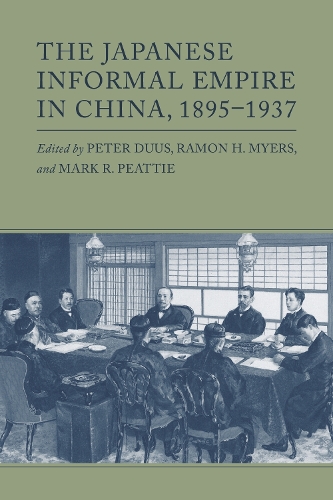
The Japanese Informal Empire in China, 1895-1937
(Paperback)
Available Formats
Paperback
Published: 23rd September 2014
Hardback
Published: 28th June 2016
Paperback
Published: 1st July 2025
Publishing Details
The Japanese Informal Empire in China, 1895-1937
By (Author) Peter Duus
Edited by Ramon H. Myers
Edited by Mark R. Peattie
Princeton University Press
Princeton University Press
1st July 2025
United States
Classifications
Tertiary Education
Non Fiction
952.03
Physical Properties
Paperback
492
Width 152mm, Height 229mm
Description
Building upon a previous study of Japan's colonial empire, this volume examines the period from 1895 to 1937 when Japan's economic, social, political, and military influence in China expanded so rapidly that it supplanted the influence of Western powers competing there. These fourteen essays discuss how Japan's "informal empire" emerged in China and how that "empire" influenced Japan's own internal development. "Describes in rich detail Japan's organization of a wide range of cultural, educational, economic, military, and bureaucratic institutions that formed the mainstays of Japanese influence in China along with the trading, manufacturing, intelligence-gathering, and political intriguing which they managed."--Wen-hsin Yeh, The Journal of Asian Studies Originally published in 1989. The Princeton Legacy Library uses the latest print-on-demand technology to again make available previously out-of-print books from the distinguished backlist of Princeton University Press. These editions preserve the original texts of these important books while presenting them in durable paperback and hardcover editions.The goal of the Princeton Legacy Library is to vastly increase access to the rich scholarly heritage found in the thousands of books published by Princeton University Press since its founding in 1905.
Author Bio
Peter Duus (19332022) was the William H. Bonsall Professor of History Emeritus at Stanford University and a senior fellow at the Hoover Institution. Ramon H. Myers (19292015) was a senior fellow at the Hoover Institution. Mark R. Peattie (19302014) was professor emeritus of history at the University of Massachusetts, Boston, and a research fellow at the Hoover Institution.
